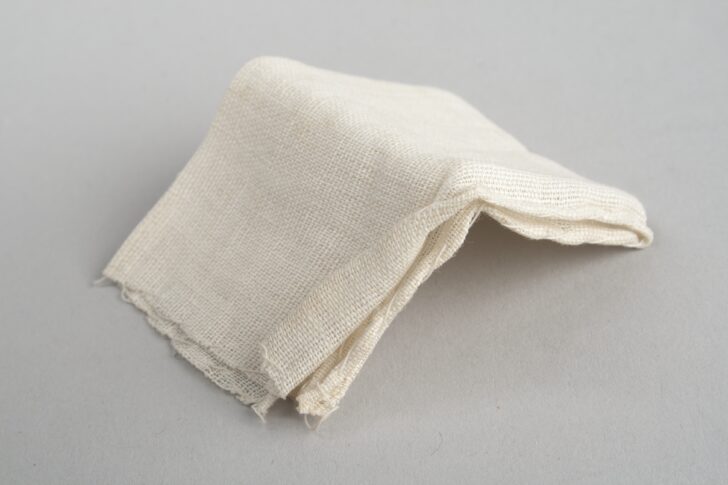Portable tea ceremony set – wipe (chakin)
Japanese

Description
Portable tea set
Japan, Meiji period (1868–1912)
Late 19th century
Gift of Ulrich and Sarah Straus, 2013/2.82A–S
Portable tea sets (chabako) began to appear during the time of the influential tea master Sen no Rikyu (1522–1591), who elevated the practice of wabi tea, which valued rustic simplicity, to new heights. Because they are meant to be carried, the tea utensils—including the tea bowl—are smaller than usual to fit neatly in the case. The smaller size does not mean that money or workmanship has been spared. Indeed wealthy tea practitioners commissioned master artisans to create implements especially for a chabako and many found great joy in assembling the objects in a small case.
The porcelain sweets container (furidashi) in this chabako is made by one of the most accomplished potters of Kyoto Ware in the nineteenth century, Eiraku Wazen. The smooth white porcelain and fine decoration of the container presents a stark contrast to the roughly made black tea bowl by an unknown potter—an important component of the wabi tea aesthetic, which celebrated precisely such differences. Many of the fragile objects have their own cases and pouches made from expensive materials; the attention to detail and the luxurious taste show the original owner’s desire to take the wabi tea aesthetic beyond the walls of a tea room.
Physical Description:
Rectangular linen wipe.
Usage Rights:
If you are interested in using an image for a publication, please visit https://umma.umich.edu/request-image/ for more information and to fill out the online Image Rights and Reproductions Request Form.